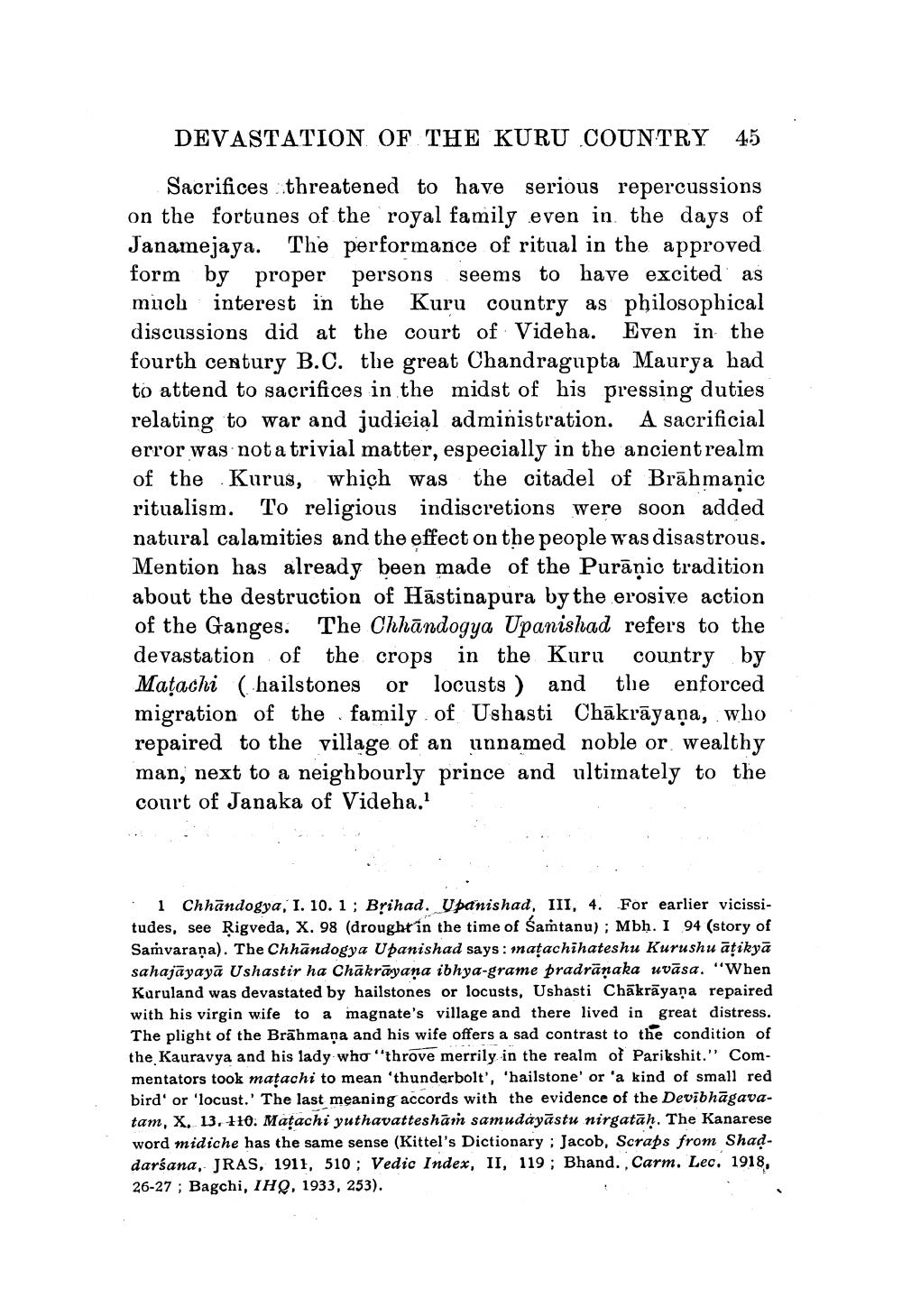________________
DEVASTATION OF THE KURU COUNTRY 45
Sacrifices threatened to have serious repercussions on the fortunes of the royal family even in the days of Janamejaya. The performance of ritual in the approved form by proper persons seems to have excited as much interest in the Kuru country as philosophical discussions did at the court of Videha. Even in the fourth century B.C. the great Chandragupta Maurya had to attend to sacrifices in the midst of his pressing duties relating to war and judicial administration. A sacrificial error was not a trivial matter, especially in the ancient realm of the Kurus, which was the citadel of Brāhmaṇic ritualism. To religious indiscretions were soon added natural calamities and the effect on the people was disastrous. Mention has already been made of the Purāṇic tradition about the destruction of Hastinapura by the erosive action of the Ganges. The Chhāndogya Upanishad refers to the devastation of the crops in the Kuru country by Matachi ( hailstones or locusts ) and the enforced migration of the family of Ushasti Chākrāyaṇa, who repaired to the village of an unnamed noble or wealthy man, next to a neighbourly prince and ultimately to the court of Janaka of Videha.?
• 1 Chhāndogya, 1. 10.1 ; Brihad. Upanishad, III, 4. For earlier vicissitudes, see Rigveda, X. 98 (drought in the time of Saṁtanu); Mbh. I 94 (story of Samvaraņa). The Chhāndogya Upanishad says: mațachihateshu Kurushu ātikyā sahajāyayā Ushastir ha Chākrāyana ibhya-grame pradrānaka uvāsa. "When Kuruland was devastated by hailstones or locusts, Ushasti Chākrāyana repaired with his virgin wife to a magnate's village and there lived in great distress. The plight of the Brāhmana and his wife offers a sad contrast to the condition of the Kauravya and his lady who 'throve merrily in the realm of Parikshit." Commentators took matachi to mean 'thunderbolt', 'hailstone' or 'a kind of small red bird' or 'locust.' The last meaning accords with the evidence of the Devibhāgavatam, X. 13. 110. Matachi yuthavattesham samudayāstu nirgatāh. The Kanarese word midiche has the same sense (Kittel's Dictionary: Jacob, Scraps from Shad. darśana, JRAS, 1911, 510 ; Vedic Index, II, 119; Bhand., Carm. Lec. 1918, 26-27; Bagchi, IHQ, 1933, 253).




